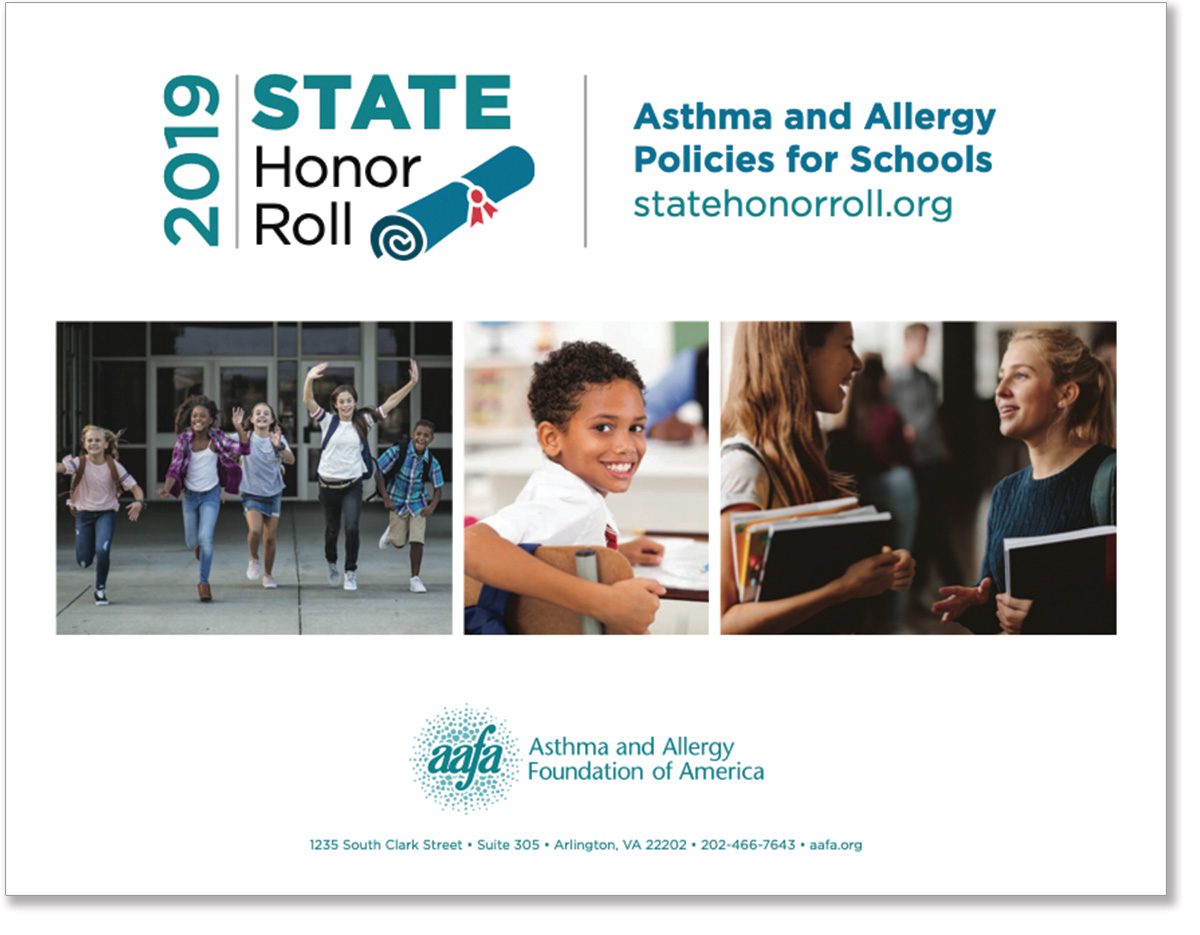Advocacy
Colorado
The 2019 State Honor Roll of Asthma and Allergy Policies for Schools ranks the states with the best public policies for people with asthma, food allergies, anaphylaxis and related allergic diseases in U.S. elementary, middle and high schools.
Closed
Medication and Treatment Policies
Meets nine of 12 core policy standards in this category:
| 1. State requires physician’s written instructions to be on file to dispense prescription medication to students. |  |
| 2. State policy ensures students’ right to self-carry and self-administer prescribed asthma medication. |  |
| 3. State policy ensures students’ right to self-carry and self-administer prescribed anaphylaxis medication. |  |
| 4. State policies or procedures shield school personnel from liability for unintended injuries. |  |
| 5. State requires local school districts to create asthma and anaphylaxis medication policy and provides resources, guidelines and parameters. |  |
| 6. State policy mandates schools to identify and maintain records for students with chronic conditions including asthma and anaphylaxis. |  |
| 7. State requires a procedure updating health records periodically. |  |
| 8. State requires that schools maintain asthma/allergy incident reports for reactions, attacks and medications administered. |  |
| 9. State requires a student health history form that includes asthma/allergy information to be maintained for each student. |  |
| 10. State requires schools to have emergency protocols for asthma. |  |
| 11. State requires schools to have emergency protocols for anaphylaxis. |  |
| 12. Nurse-to-student ratio is 1:750 or better. |  |
Meets two of six extra credit indicators in this category:
| A. State requires anaphylaxis medicine – epinephrine – stocking and authority to administer in schools. |  |
| B. State allows and/or requires asthma quick-relief medicine – albuterol – stocking and authority to administer in schools. |  |
| C. State has or is preparing an explicit asthma program with policies, procedures and resources for schools to manage students with asthma. |  |
| D. State has or is preparing an explicit anaphylaxis program with policies, procedures and resources for schools to manage students with allergies. |  |
| E. State has adopted policy that each school will have one full-time nurse. |  |
| F. State has adopted policy that school districts provide case management for students with chronic health conditions such as asthma. |  |
Awareness Policies
Meets both core policy standards in this category:
| 13. State recognizes problem of asthma in schools and has begun to address it. |  |
| 14. State recognizes problem of allergy in schools and has begun to address it. |  |
Meets both extra credit indicators in this category:
| G. State sponsors or provides funding for staff training in asthma awareness covering school asthma program/policy and procedures. |  |
| H. State sponsors or provides funding for staff training in food allergies. |  |
School Environment Policies
Meets four of nine core policy standards in this category:
| 15. State has mandated that all schools must have indoor air quality (IAQ) management policies. |  |
| 16. State has adopted a policy requiring that districts and schools conduct periodic inspections of heating, ventilation and air conditioning (HVAC) system & other items important in asthma/allergy management. |  |
| 17. State has IAQ policies that include specific components important in asthma/allergy management (HVAC, HEPA, carpeting, pesticide use). |  |
| 18. State recommends/requires that districts or schools use Integrated Pest Management (IPM) techniques OR ban use of pesticides inside school. |  |
| 19. State requires schools to notify parents of upcoming pesticide applications. |  |
| 20. State limits school bus idling time and establishes proximity restrictions. |  |
| 21. All smoking is prohibited in school buildings and on school grounds. |  |
| 22. All smoking is prohibited on school buses and at school-related functions. |  |
| 23. Tobacco-use prevention is required in health education curriculum. |  |
Meets four of five extra credit indicators in this category:
| I. State makes funding or resources available for technical IAQ assistance to schools. |  |
| J. State recommends standards and programs to promote environmentally preferable materials for school construction, maintenance and cleaning. |  |
| K. State requires school facility design standards that include low emission construction materials, pollutant source controls, durable and easy to clean surfaces and floors, moisture/mold controls. |  |
| L. State has implemented or actively promotes diesel school bus engine retrofitting program. |  |
| M. State requires districts or schools to provide tobacco-use-cessation services to students. |  |
Policy Gaps
Noteworthy
Epinephrine Auto-Injectors in Schools: A 2013 law requires the state board of education to adopt rules on the management of students with life-threatening allergies, train users of epinephrine auto-injectors, and report incidences of anaphylaxis and the administration of epinephrine auto-injectors. Schools have the discretion to adopt a policy regarding epinephrine auto-injectors, but must create a policy if they acquire and maintain a stock supply of epinephrine auto-injectors. The law shields school personnel from liability for unintentional injury regardless of whether epinephrine is administered by the student or by a school employee. However, the law only addresses liability for epinephrine use, not asthma medications. CO H.B. 1711
Allergy Awareness in Schools: In 2009, Colorado enacted a law directing each school district and charter school institute to develop a policy to manage the risks posed by food allergies and anaphylaxis to students. The state now requires that the state Board of Education, in consultation with the Public Health and Environment Department, make rules to manage the risks posed by food allergies and anaphylaxis in public schools. In addition, state school districts and the state charter schools must develop policies that satisfy these rules. Colorado also requires schools to identify students with food allergies and keep records of student allergies and medications.
Indoor Air Quality Assistance: A 2013 law does not set aside specific funding/resources for IAQ assistance, but going forward, schools (and school districts) that receive state funding must ensure that all new or renovated buildings meet the highest energy efficiency standards available, including improving the indoor environmental quality of school buildings. CO S.B. 279
School Nurses: In 2019, Colorado enacted legislation creating a grant program to increase the number of school nurses and appropriating funds to the program. CO H.B. 19–1203
Animals in Schools: Colorado’s regulations regarding animals in schools require that “Location and/or presence of animals shall be determined based on the protection of the health of students and staff with allergies and/or asthma.” (6 CCR 1010-6:6.7 Sanitary Facilities and Controls, Adopted April 14, 2015. Amended March 17, 2018.).










